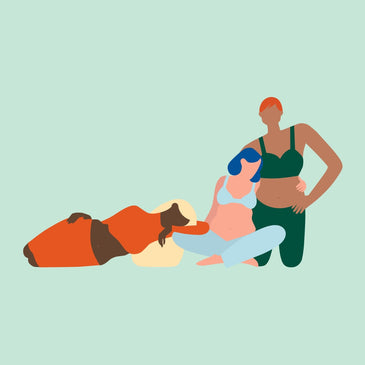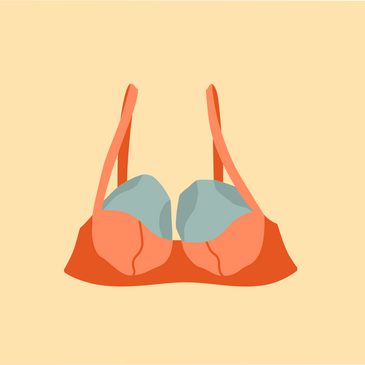Bodily does not provide medical advice, diagnosis, or treatment. The resources on our website are provided for informational purposes only. You should always consult with a healthcare professional regarding any medical diagnoses or treatment options.
What is this?
During pregnancy, some people’s feet get bigger — and never return to their pre-pregnancy size. It’s true, and while inconvenient, it is the result of some pretty incredible processes that the body goes through as it transforms to be able to create and deliver a new human.
During pregnancy, the hormone relaxin (produced by the placenta) causes ligaments to, well, relax, to enable bones and ligaments to make space for a baby in the pelvis during pregnancy, and to ease passage through the birth canal during delivery. Relaxin increases by seven to 10 times during pregnancy and this, combined with increased body mass, can flatten arches and elongate feet — permanently.
How common is it?
Very common. One study suggests that 60% of people saw their feet get longer and 70% saw their feet get wider during pregnancy, and that many women jump a half or whole shoe size. Researchers found that the change was most pronounced after first pregnancies.
How long does it last?
These changes appear to be permanent.
What can I do to prevent it?
It’s hypothesized that wearing orthopedic insoles during pregnancy may help prevent the arch of the foot from flattening and foot size from increasing, however more research is needed for conclusive recommendations (as is common in areas of female physiology). Weight gain that goes beyond the recommendation of your doctor can also contribute to added pressure on the arches, causing them to fall or collapse.
When should I worry?
These changes aren’t usually a cause for alarm in day-to-day life. But researchers believe that these changes to the feet during pregnancy could be why women are at higher risk than men for pain or arthritis in their feet, knees, hips and spine. It may be worth talking to a doctor about extra measures you can take to prevent musculoskeletal disorders if you notice that your feet grew after pregnancy.
Exercise, because it strengthens the muscles and tissues around your joints, and can help you lose the weight that is bearing down on those joints, is a known reliever of joint pain and stiffness. And it may also help reduce the risk of developing arthritis in the first place.


-v1721958428969.jpg?830x1020)


